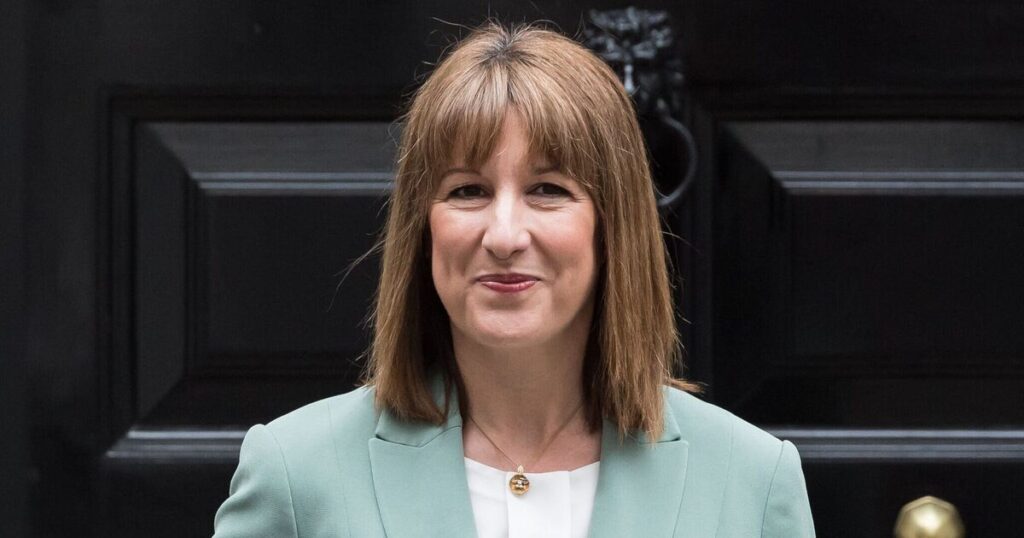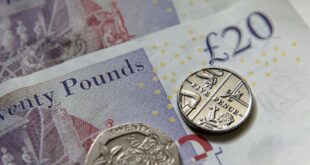

Experts have issued advice as the Chancellor refused to rule out extending a tax threshold freeze. (Image: Getty)
Rachel Reeves is thought to be planning to resort to a tax revenue gathering tool that is “hard to avoid” after Government U-turns left a £5billion hole in the UK’s finances after the Government U-turned over its planned welfare reforms. With income tax thresholds currently frozen until April 2028, speculation is mounting that this could be extended, which would mean more people being pulled into higher tax bands, even if their earnings haven’t kept pace with inflation.
This would particularly be felt by those being absorbed into the higher rate tax threshold of earnings above £50,270, and is worse still for individuals earning between £100,000 and £125,140, who see the loss of their personal allowance significantly reducing their take-home pay, Kwasi Yeboah, financial planner at Saltus, said.
READ MORE: Victims of Afghan data breach blunder can ‘expect compensation in the thousands’
READ MORE: Labour’s votes-at-16 plan is a ‘cynical attempt to rig the next election’

Fiscal drag ‘poses a serious threat’. (Image: Getty)
ISAs
He added that families with young children, where an individual’s earnings are in excess of £60,000, will also start to lose access to child benefit.
Maxine McCreadie, a personal finance expert at UK Debt Expert, said: “For those struggling with problem debt or teetering on the edge, fiscal drag poses a serious threat.”
She added: “For those facing stretched budgets, this could reduce any budgetary breathing room even further, despite their gross income increasing.”
The rumoured decision could also make debt repayments more challenging for those who are already in a debt solution, or approaching problem debt, the expert said, as take-home pay may not actually increase in-line with expectations.
Those in the know have outlined some top tips for those looking to protect as much of their earnings as they can from the Treasury, urging Brits to be “more tax efficient”.
Nicholas Hyett, Investment Manager at Wealth Club advises that “the best most people can hope for is to make full use of their tax allowances, making sure that at least their hard-earned savings aren’t subject to double taxation”.
“ISAs are crucial for both cash and investments, keeping investment income away from the taxman and stopping it from being taxed at higher rates,” he added.
Mr Yeboah said any income or gains within ISA “wrappers” are sheltered from tax, regardless of threshold changes.
“For couples and families, it’s also worth exploring whether assets or income can be shared between spouses to optimise the use of both personal allowances,” he added.
“What’s important is to avoid knee-jerk decisions.
“Tax planning should be strategic and tailored, and with ongoing uncertainty around thresholds and allowances, getting expert advice now is more valuable than ever.”
Matt Ford, cofounder and CEO of digital wealth platform Sidekick, said: “ISAs are still one of the best defences we’ve got. Stocks and shares ISAs in particular let you invest without worrying about dividend or capital gains tax which is a big win if you’re trying to build wealth over time.
“And with interest rates where they are, more people are getting caught out by tax on savings interest. Using a cash ISA or money market fund inside an ISA can help.”
Ade Babatunde, associate financial planning director at Rathbones, said: “An ISA shelters your savings and investments from both, allowing your money to grow free from tax.
“By shielding dividends and capital gains from the taxman, ISAs help turbocharge long-term returns. That means more of your money stays invested and compounding over time, rather than being chipped away by tax.”
He added: “Unlike pensions, ISAs don’t offer upfront tax relief, but they provide greater flexibility when it comes to accessing your money, as you don’t have to wait until age 55 to access funds (57 from 2028).
“They also play a key role in reducing your future tax burden, helping you stay under income thresholds that trigger higher tax rates or the loss of benefits.”

Matt Forde says ISAs are ‘one of the best defences we’ve got’. (Image: Leila PR)
Pension contributions
Mr Hyett said: “For those earning more than they need to live on day-to-day, putting more money into your pension presents a partial solution to the problem.
“Money you put in a pension is free from tax – allowing you to reduce your tax bill today – though withdrawals in the future may still attract income tax.
“At the very least, upping your pension contribution could allow you to shift income from your highest earning years, when you face the highest rates of income tax, to retirement, when you’re likely to face lower rates of income tax.”
Mr Yeboah said: “Contributing more into a pension, for example, not only reduces your taxable income but also boosts long-term financial security.
Mr Ford said: “If you’re a higher earner, pensions are still a smart way to reduce your tax bill now while saving for later.
“It’s not about doing anything fancy. Just making sure more of your money stays yours.”
Venture capital schemes
Mr Hyett said: “More experienced investors, who already have a mainstream investment portfolio, might want to consider the government’s venture capital schemes.
“These government backed schemes are designed to support UK smaller companies and help them raise money to fund growth, giving investors generous tax reliefs in return.”
He added: “In particular, venture capital trusts, or VCTs, allow investors to back a portfolio of UK start-ups though a stock market listed vehicle and receive 30% income tax relief, as well as tax free dividends and capital gains.
“These are long term investments though, with a minimum holding period of five years to qualify for tax relief, and higher risk than more conventional stock market investments.”
Ian Dempsey, Independent Financial Planner and Coach at The Moneymana little bit niche is venture capital trusts and enterprise investment schemes. There are significant tax breaks on them.
“The caveat is that they are typically only for high-risk investors, and there is a significant chance of total loss of capital. These aren’t for everybody; they’re very specialist, but it is a way for high earners to potentially avoid tax.
“I’ve got high earners that I look after that use these on a consistent basis, almost like an allowance, like their ISA and like their pension.”

The Chancellor needs to find more money after the Government’s U-turn on welfare reforms. (Image: Getty)
Salary sacrifice
Mr Dempsey said that paying attention to salary sacrifice – an agreement to reduce an employee’s entitlement to cash pay, usually in return for a non-cash benefit – so you save on national insurance.
“Make sure your salary sacrificing everything that you possibly can,” he said.
“There could be car schemes, there could be gym memberships.”
Mr Babatunde said: “Salary sacrifice is particularly powerful.
“Not only does it reduce your income tax bill, it also lowers national insurance contributions for both you and your employer.
“Not every employer offers the option of paying into your pension using salary sacrifice, so you’d need to check.”
Ms McCreadie said: “If you’re comfortable that your financial situation gives you enough stability, salary sacrifice can be used for things like childcare vouchers or buying a bike through a cycle-to-work scheme.
“While this will impact your take home pay, it can help to reduce your tax bill while making your money go further.”
She also warned: “While most advice on fiscal drag will focus on increasing pension contributions or using salary sacrifice schemes, it’s vital that any impact on take-home pay doesn’t leave you unable to cover all essential bills and debts like rent or mortgage payments, council tax and utilities bills.
“In these cases, the best advice is to prioritise clarity over your financial situation. Understanding your income, expenses and any debt repayments will help you to fully understand where your money is going.
“There are a number of budgeting apps available to make this task easier, and free debt advice providers can help you to create a plan for debt repayments.”
Tax-free childcare account
Mr Babatunde said: “For high earning parents, keeping income under these thresholds could also preserve access to valuable childcare benefits, such as 15 or 30 hours of free childcare and eligibility for the Tax-Free Childcare account.
“For those at risk of losing child benefit due to the High Income Child Benefit Charge, it can help keep your income below the £60,000 threshold, help keep their benefits intact.”
 Latest World Breaking News Online News Portal
Latest World Breaking News Online News Portal






